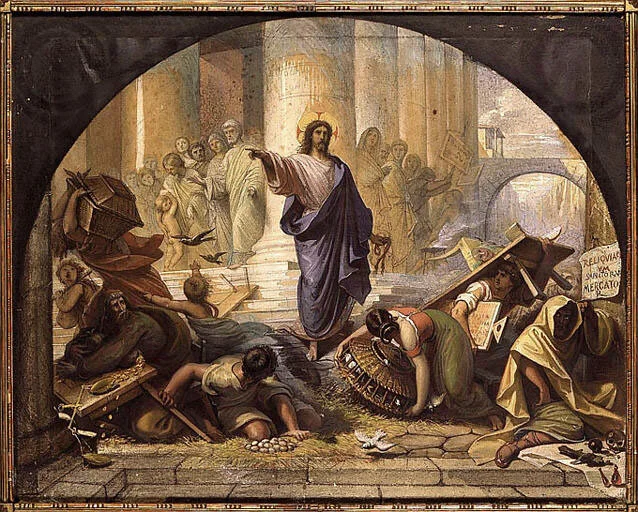
The Righteous Anger of Christ
The cleansing of the temple stands as one of the most dramatic moments in Jesus' ministry. Arriving in Jerusalem for Passover, Christ found the sacred courts of God's house transformed into a marketplace—a den of commerce where pilgrims were exploited through exorbitant exchange rates and sacrificial animals were sold at inflated prices.
With righteous indignation, Jesus fashioned a whip of small cords—not as a weapon against people, but as a tool to drive out the animals. His actions were measured yet forceful, demonstrating that some offenses demand a strong response. The tables of money changers overturned with a crash, coins scattering across the temple floor as Jesus declared, "Take these things hence; make not my Father's house an house of merchandise."
The Significance of Small Cords
The "small cords" mentioned in John 2:15 represent both the physical instrument Christ used and the spiritual symbolism of his authority. These were likely reeds or rushes gathered from the temple floor itself—common materials transformed into an instrument of divine justice.
This moment reveals Christ's zeal for pure worship and his intolerance for the corruption of sacred spaces. The temple was meant to be "a house of prayer for all nations" (Mark 11:17), not a marketplace. Jesus' actions fulfilled prophecy (Malachi 3:1-3) and demonstrated his authority to purify worship.
Righteous Anger Versus Human Anger
Christ's anger was fundamentally different from human anger. Where our anger often stems from wounded pride or selfish motives, Jesus' anger flowed from his love for God and concern for true worship. It was:
- Directed at sin and injustice, not at people
- Controlled and purposeful, not reckless
- Accompanied by grief over corruption (Mark 3:5)
- Followed by teaching and healing (Matthew 21:14)
The small cords remind us that Christ comes both to cleanse and to restore—to drive out corruption so that true worship may flourish.